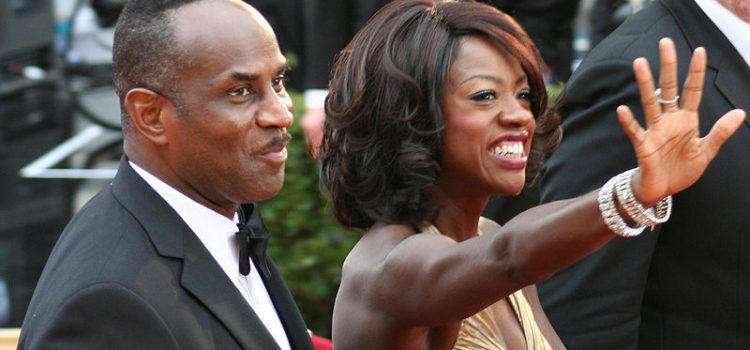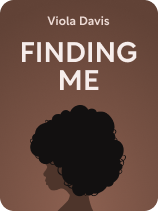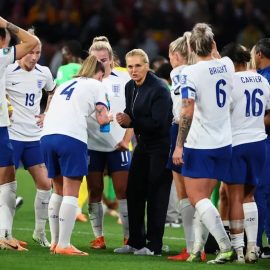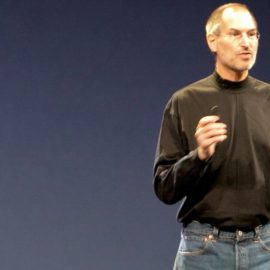

This article is an excerpt from the Shortform book guide to "Finding Me" by Viola Davis. Shortform has the world's best summaries and analyses of books you should be reading.
Like this article? Sign up for a free trial here.
How did Viola Davis and Julius Tennon meet? How has their relationship transformed their lives?
Viola Davis and Julius Tennon’s romance began on a film set in 1999. Their connection blossomed into a marriage that brought happiness, stability, and new opportunities. Together, they navigated the challenges of the entertainment industry and built a family.
Read on to discover how this power couple’s journey unfolded and the impact they’ve had on each other’s lives and careers.
Image source: Flickr
Viola Davis and Julius Tennon
Viola Davis and Julius Tennon met on the set of City of Angels three weeks after she moved to Los Angeles in 1999. He gave her his card, but it took her six weeks to work up the confidence to call him.
(Shortform note: Before meeting Davis, Tennon had an established career in the entertainment industry. He appeared in numerous television shows and films, including guest roles in popular series such as Criminal Minds, The Practice, and Friday Night Lights. Tennon also had roles in films like Dazed and Confused and Hard Target. Additionally, he had experience as a producer, working on projects like the documentary “The Start of Dreams.” While not as well-known as Davis, Tennon remains active in the entertainment industry, balancing his acting work with his other roles as a producer and writer.)
According to Davis, she became happier and more self-confident after she began dating Tennon. In earlier relationships, Davis had never felt like a priority to the men she dated, but Tennon was caring and attentive and made Davis feel wholly loved.
(Shortform note: The link between self-esteem and the dynamics of romantic relationships is well established within psychological research. For example, social penetration theory highlights how forming deep, emotional connections through self-disclosure within intimate relationships can significantly improve self-esteem. According to this theory, when individuals, such as Viola Davis, are with partners who are attentive and prioritize their needs, this validates their sense of worth and shows them they’re important in their partner’s life. This positive reinforcement from a loved one not only strengthens the bond between partners but also plays a crucial role in bolstering an individual’s sense of self-worth.)
Davis’s relationship with Tennon also allowed her to become financially stable for the first time in her life. The couple moved in together and were slowly able to save enough money to buy a condo. Davis continued to get consistent work, but often in smaller roles and still as the drug-addicted mother (Antwone Fisher) or a white woman’s best friend (Eat Pray Love), but it was enough to sustain her and help out her parents and sisters whenever she could.
(Shortform note: In Reel Inequality, Nancy Wang Yuen analyzes Hollywood’s history of typecasting and its role in perpetuating systemic racism. Like Davis, Yuen argues that typecasting confines actors of color to stereotypical roles, reinforcing harmful racial stereotypes and stunting their professional growth. Yuen advocates for having more people of color in key creative and decision-making roles. By increasing the number of directors, writers, and producers of color, she explains, Hollywood can begin to challenge and change the deeply ingrained narratives and stereotypes that still persist.)
Tennon proposed to Davis in 2002, and the two were married at a small ceremony in Los Angeles on July 23, 2003. They celebrated their wedding again at a larger gathering with Davis’s whole family in Rhode Island later that year.
(Shortform note: While celebrity weddings are often plagued by paparazzi, Davis was still flying under the radar when she got married in 2003. According to Davis, she didn’t begin to have to worry about being followed by photographers until after her role as Annalise Keating in How to Get Away With Murder.)
Becoming Parents
Davis explains that she had always wanted to be a mother but had long struggled with chronic fibroids. After years of pain and the discovery of an abscessed fallopian tube, Davis decided to have an elective hysterectomy.
(Shortform note: Hysterectomies are a common operation, but they can bring hidden emotional burdens and social pressures for the women who have them. In societies where women’s worth is often tied to having children and sexual relationships, this surgery can make women see themselves differently and affect their personal relationships. Worries about feeling less attractive or having issues with sex after the surgery can make these feelings worse. Because of these potential effects, many women who have had hysterectomies stress the need for doctors to explain all the options and make sure women have all the information before going ahead.)
However, her hysterectomy didn’t stop Davis from fulfilling her dream of motherhood. She and Tennon adopted a baby girl, Genesis, in 2011.
(Shortform note: In a conversation with Ellen DeGeneres in December 2020, Davis opened up about Genesis’s aspirations to follow in her footsteps and pursue an acting career. She described her daughter’s enthusiasm for acting, highlighting her confidence in mastering dialogue and embodying characters. Genesis has already begun to carve out her space in the entertainment industry. In 2019, she was the voice of Vivi in The Angry Birds Movie 2, marking her debut on the big screen.)

———End of Preview———
Like what you just read? Read the rest of the world's best book summary and analysis of Viola Davis's "Finding Me" at Shortform.
Here's what you'll find in our full Finding Me summary:
- The story of Viola Davis’s rise from the depths of poverty to the heights of Hollywood stardom
- How acting became a beacon of hope for Davis and a path toward self-discovery
- What Davis does beyond her acting career






